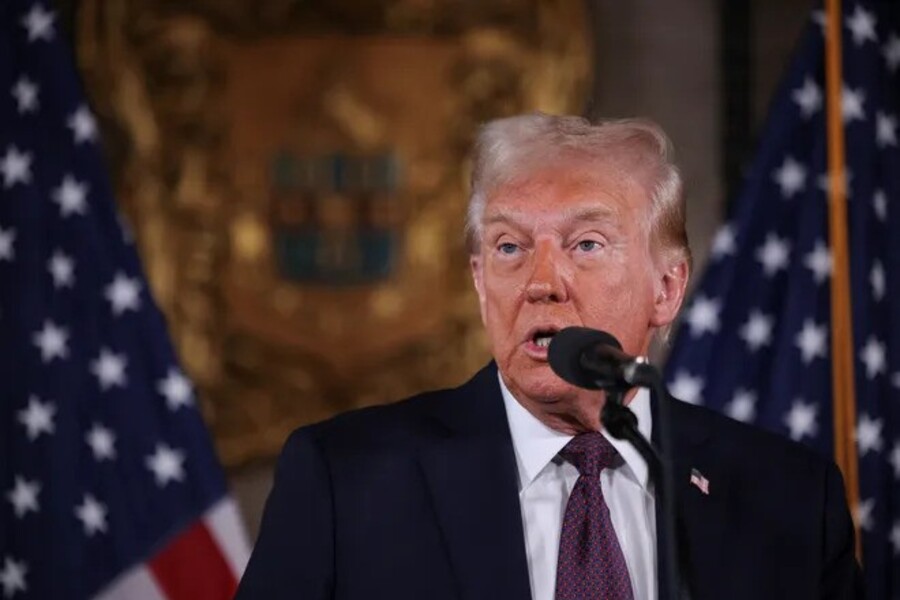President-elect Donald Trump has outlined an ambitious and controversial agenda that includes reversing key Biden-era policies, reimagining U.S. international relations, and asserting control over strategic global assets. Speaking from Palm Beach, Florida, Trump made it clear that his administration will prioritize sweeping changes once he assumes office in January.
Trump reiterated his pledge to overturn President Joe Biden’s offshore drilling ban, emphasizing the importance of energy independence. “Banning offshore drilling will not stand. I will reverse it immediately,” Trump declared. He also floated a proposal to rename the Gulf of Mexico the “Gulf of America,” signaling a symbolic shift in national identity.
The president-elect’s remarks underscored his dissatisfaction with what he described as last-minute policy moves by the outgoing administration, accusing Biden of complicating the transition process. “They’re trying everything they can to make it more difficult,” Trump said.
Trump expressed renewed interest in acquiring Greenland and taking control of the Panama Canal, citing their importance for U.S. economic and military security. “The Panama Canal was built for our military,” Trump argued, hinting at possible military action to achieve these goals. He added that Greenland, a Danish territory, would significantly enhance U.S. strategic interests.
Danish Prime Minister Mette Frederiksen rebuffed Trump’s ambitions, calling the notion of purchasing Greenland “absurd.” Meanwhile, the Panama Canal, under Panamanian control since 1999, would require renegotiation of long-standing treaties and significant bipartisan support in Congress.
Turning to the Middle East, Trump issued a stern warning to Hamas, which has held American hostages since October 2023. “If they’re not back by the time I get into office, all hell will break out in the Middle East,” he said, refusing to rule out military intervention. His appointed special envoy for the Middle East, Steve Witkoff, indicated that progress is being made in negotiations and that Trump’s firm stance has sent a clear message.
On the ongoing conflict in Ukraine, Trump adjusted his campaign promise of ending the war in a single day, now projecting a six-month timeline. “I hope to have six months,” he said, adding that he has not yet met with Russian President Vladimir Putin but plans to engage in talks post-inauguration. Trump has appointed retired General Keith Kellogg as a special envoy to handle the issue and has already met with Ukrainian President Volodymyr Zelenskyy.
Trump once again criticized NATO allies for insufficient defense spending, calling for member nations to allocate at least 5% of their GDP to defense, up from the current 2% minimum. “I saved NATO, but NATO’s taken advantage of us,” Trump said. He also targeted Canada with trade penalty threats, suggesting that U.S. protection of its northern neighbor warrants greater reciprocity.
Outgoing Canadian Prime Minister Justin Trudeau responded to Trump’s comments with a defiant social media post: “There isn’t a snowball’s chance in hell that Canada would become part of the United States.”
Trump’s ambitious proposals have drawn sharp criticism from international leaders and domestic opponents, while his supporters praise his decisive approach to reasserting American dominance. From his calls for energy independence to his demands for NATO contributions, Trump’s vision signals a dramatic departure from the policies of his predecessor.
As the world watches closely, Trump’s presidency promises to reshape the geopolitical landscape and ignite debates over the role of the United States in global affairs. With a mix of bold initiatives and contentious rhetoric, the incoming administration is poised to leave an indelible mark on both domestic and international policy.


